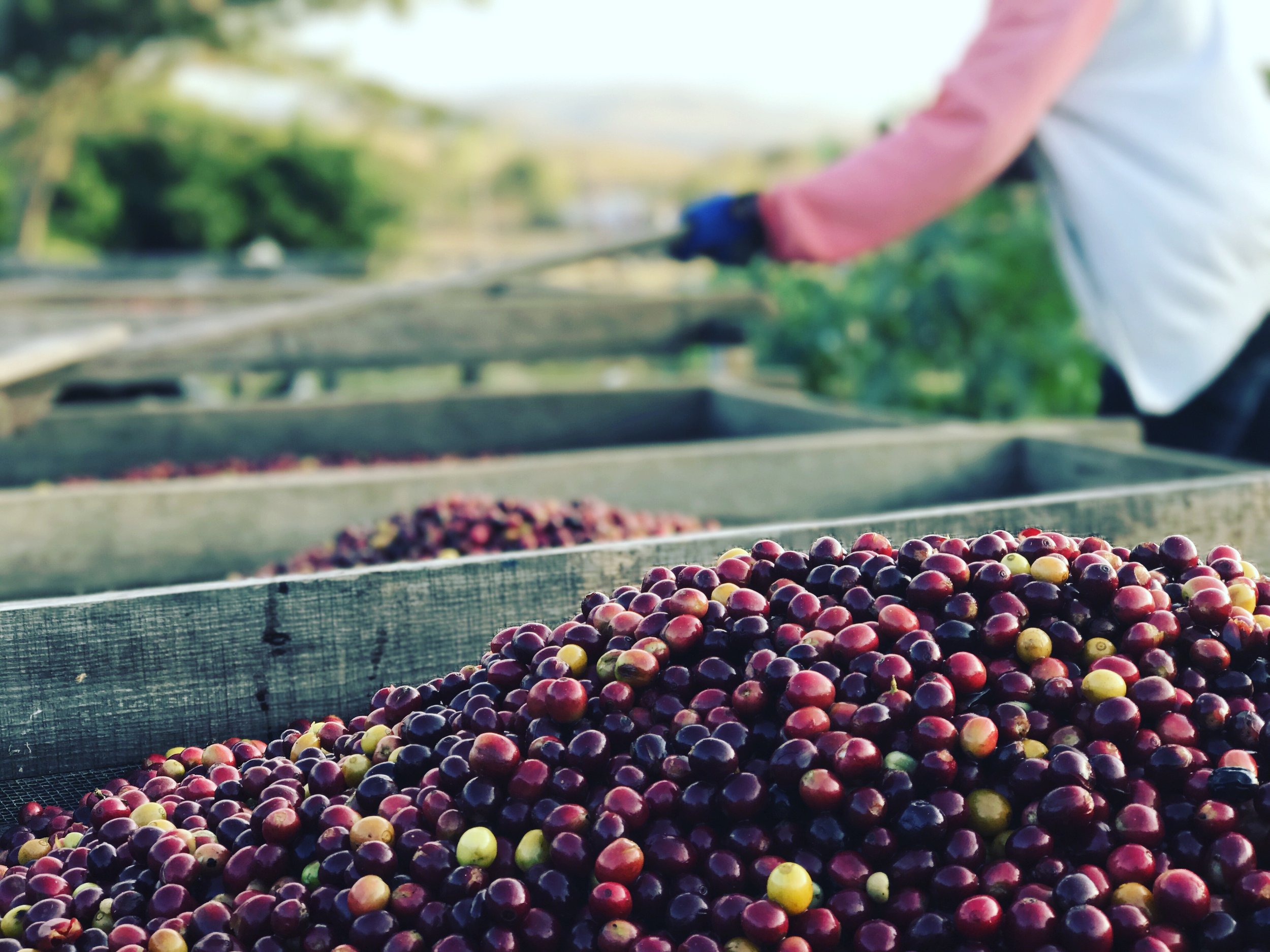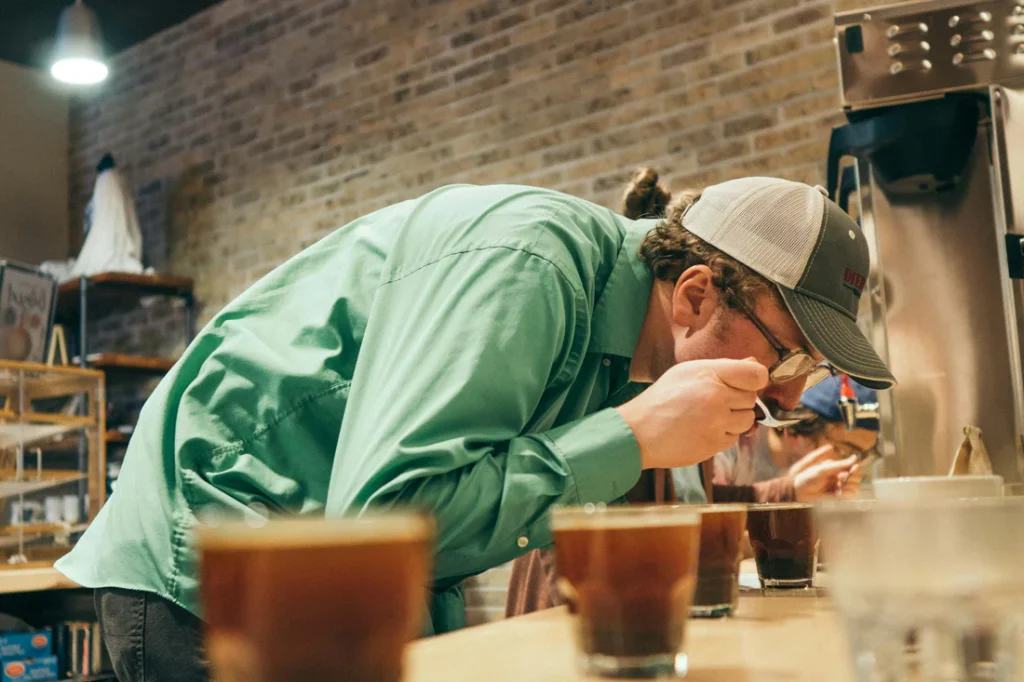Blog
Explore the World of Specialty Coffee
Specialty coffee has become a global phenomenon, taking coffee lovers on an exciting journey that goes far beyond the typical coffee experience. From the meticulous cultivation of beans to the art of brewing, specialty coffee offers a unique and elevated drinking experience that highlights the incredible diversity of flavors and aromas that coffee has to offer.
In this guide, we’ll explore what makes specialty coffee stand out, how it’s different from regular coffee, and how to appreciate its complexities. Whether you’re a seasoned coffee enthusiast or a beginner, understanding the world of specialty coffee will enhance your coffee-drinking experience.
1. What is Specialty Coffee?
Specialty coffee is coffee that scores 80 points or higher on a 100-point scale, as rated by certified coffee graders. These coffees come from high-quality beans that are carefully sourced, processed, roasted, and brewed to bring out the best flavors. The term “specialty” emphasizes not just the quality of the beans but also the care taken at every stage of production, from the farm to the cup.
What sets specialty coffee apart from standard commercial coffee is the attention to detail and the emphasis on unique flavor profiles. These coffees are often grown in specific regions with optimal conditions, harvested by hand, and processed in ways that preserve their distinctive characteristics.

2. The Coffee Bean Origins
The flavor of coffee is largely influenced by where the beans are grown. Specialty coffee beans are often sourced from specific regions or even individual farms, each with unique climate conditions and soil types that impact the final taste. Here are some popular coffee-growing regions known for producing specialty beans:
- Ethiopia: Known as the birthplace of coffee, Ethiopian coffee is famous for its fruity, floral flavors, with bright acidity and complex aromas. Beans from regions like Yirgacheffe and Sidamo are particularly sought after for their distinct flavor profiles.
- Colombia: Colombian coffee is renowned for its balanced flavor, mild acidity, and nutty or chocolatey undertones. Colombian beans are a staple in specialty coffee circles due to their versatility and smoothness.
- Guatemala: Guatemalan coffee, particularly from regions like Antigua, is known for its rich body, bright acidity, and flavors of chocolate and spice. These coffees are perfect for those who appreciate a full-flavored cup.
- Kenya: Kenyan coffee is famous for its bold acidity and vibrant fruitiness. Often with notes of berry, citrus, and wine-like qualities, Kenyan beans are ideal for those who enjoy a tangy and juicy coffee.
- Costa Rica: Costa Rican coffees are known for their bright acidity and clean, crisp flavors. They often have fruity, citrusy notes with a light to medium body, making them a refreshing option for coffee lovers.
Each region offers a distinctive taste experience, and specialty coffee focuses on highlighting these unique flavors.

3. The Coffee Processing Methods
How coffee is processed after it’s harvested plays a significant role in its flavor. There are several methods used to process coffee, each affecting the final taste in different ways:
- Washed (Wet) Process: In this method, the beans are removed from the cherry, and the fruit is washed off before the beans are dried. Washed coffees tend to have cleaner, brighter flavors and more pronounced acidity.
- Natural (Dry) Process: With the natural method, the beans are dried inside the cherry, allowing the fruit’s sugars to infuse the beans with flavor. Natural coffees often have a fruity, sweet profile with a heavier body.
- Honey Process: This method is a hybrid between washed and natural. The beans are partially dried with some of the fruit’s mucilage still attached, resulting in a coffee that has a balance of sweetness, body, and acidity.
Each processing method brings out different aspects of a coffee’s flavor, and specialty coffee roasters are often keen to highlight these variations.
4. Specialty Coffee Roasting
Roasting is a key step in the specialty coffee process. While commercial coffee beans are often roasted quickly and at high temperatures to ensure uniformity, specialty coffee beans are roasted with more care and precision to bring out their unique flavors.
- Light Roasts: Light roasts preserve the natural characteristics of the bean and are ideal for highlighting bright acidity and floral or fruity flavors. These roasts often have a light to medium body and are perfect for those who enjoy a more delicate cup of coffee.
- Medium Roasts: Medium roasts strike a balance between the natural flavors of the beans and the development of roasted characteristics like caramel and chocolate. These coffees have a smooth, balanced flavor with moderate acidity.
- Dark Roasts: Dark roasts bring out bold, smoky flavors with a lower emphasis on acidity. While the natural characteristics of the bean are subdued, dark roasts offer a rich, full-bodied coffee with a pronounced roasted flavor.
Specialty coffee roasters experiment with various roast profiles to bring out the best in each batch of beans. A good roaster will ensure that the beans are roasted to their optimal point, without burning or over-roasting.
5. Brewing Specialty Coffee
Brewing specialty coffee requires attention to detail and precision, but the result is a cup that’s packed with flavor. The brewing method you choose will influence the final taste, and specialty coffee is best brewed with equipment that allows for consistent results.
- Espresso: Espresso machines use high pressure to extract concentrated coffee, making it perfect for strong, rich coffee drinks like lattes and cappuccinos. Specialty espresso roasts often feature bold flavors that shine when brewed under pressure.
- Pour-Over: This manual brewing method uses gravity to pull water through the coffee grounds. It’s ideal for highlighting the subtle flavors of specialty beans, allowing for a clean, vibrant cup.
- French Press: The French press method uses immersion brewing, allowing the coffee grounds to steep in hot water. This results in a full-bodied, rich coffee that retains oils and fine particles from the beans.
- Aeropress: A versatile brewing method that uses air pressure to extract coffee, the Aeropress can produce a strong, espresso-like coffee or a lighter brew depending on your technique.
When brewing specialty coffee, it’s important to pay attention to factors like grind size, water temperature, and brew time to ensure the best extraction of flavors.
6. Tasting and Enjoying Specialty Coffee
To truly appreciate specialty coffee, it’s essential to focus on the tasting experience. Specialty coffee enthusiasts often engage in “cupping,” a process where coffee is brewed and tasted systematically to evaluate its flavor profile. When tasting specialty coffee, consider the following attributes:
- Acidity: The bright, tangy notes that give coffee a lively and fresh flavor. It can be compared to the acidity found in fruits like apples or berries.
- Body: The thickness or mouthfeel of the coffee, which can range from light and watery to rich and creamy.
- Flavor Notes: The distinct flavors in the coffee, such as chocolate, berry, nutty, floral, or even herbal. Specialty coffees often have multiple flavor notes that unfold as you drink them.
- Aftertaste: The lingering taste left in your mouth after sipping. A clean, pleasant aftertaste is a hallmark of well-crafted specialty coffee.
7. Why Choose Specialty Coffee?
There are many reasons to explore the world of specialty coffee. Here are a few:
- Quality: Specialty coffee beans are often sourced from the best farms and processed with care, ensuring a higher-quality product than standard coffee.
- Flavor: With its wide range of flavors, specialty coffee offers a taste experience that’s far more diverse and exciting than typical coffee.
- Sustainability: Many specialty coffee roasters focus on ethical sourcing, working directly with farmers to ensure fair wages and sustainable practices.
- Freshness: Specialty coffee is often roasted in small batches, ensuring that the coffee is fresh and flavorful when you brew it.
Conclusion
Specialty coffee is more than just a drink; it’s an experience that highlights the artistry and craftsmanship of coffee production. From the careful selection of beans to the artful roasting and brewing techniques, specialty coffee offers a world of flavors and aromas that are waiting to be explored. Whether you’re a seasoned coffee lover or new to the world of specialty coffee, there’s always something new and exciting to discover.


